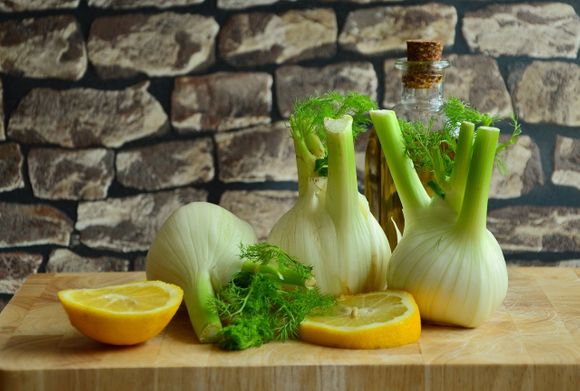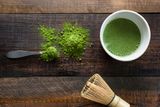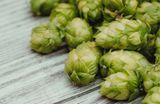Author: Sylvia Marinova, PhD student in the Genomic Stability Laboratory at BAS
Fennel (Foeniculum vulgare) also known by the names wild dill, pharmacy dill, morach and false fenugreek, is a highly aromatic plant. It is an insufficiently well-known but extremely valuable plant that has high value both as food and as an herbal solution in the traditional medecine.
Before adreesing the real topic, let's mention a curious fact concerning an ancient close relative of the fennel - the lost herb sylphium. Today it does not exist, but it was very well known to the ancient Romans and Greeks [ref.1]. As we will see below, modern fennel should also not be used for medicinal purposes by pregnant women.
Appearance
Fennel is not a so well known representative of the Apiaceae family in our country, unlike dill and carrots, for example, which also belong to it. Its stem reaches up to 2 m in height, the bulb is white and the elongated part of the stem is light green.
Its leaves visually resemble strongly those of dill. The taste is anise like due to the high amount of anethole oil in it. Anethole oil is an essential ingredient of mastic and ouzo.
Medicinal properties of fennel
Numerous studies have examined the pharmacological properties and activity of fennel. It is included in the famous book of Ayurvedic medicines and is used to treat a variety of conditions.
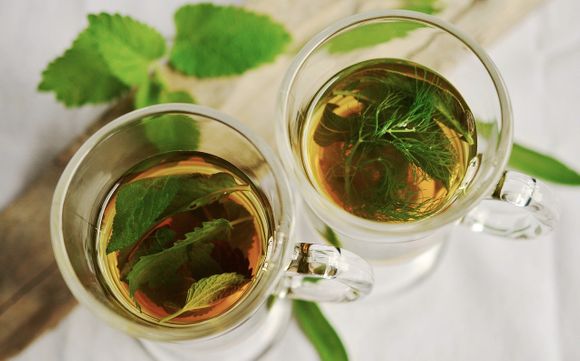
Phytochemical research have led to the isolation of a wide range of active ingredients from fennel. Most of these compounds can be found in the fennel's essential oil, called anethole oil to which most of the pharmaceutical effects of fennel are attributed to. 87 volatile compounds [ref.2] were successfully isolated from anethole oil, the largest amount being trans-anethole.
Other important classes of compounds that can be found in fennel are flavonoids and phenolic compounds. They have antioxidant (protect against free radicals), hepatoprotective (strengthen the resistance of the liver), anti-inflammatory, laxative (stimulates bowel movements) and other properties [ref.3].
Read more in the article .
Fennel reduces bloating
One of the widest applications of fennel is due to its beneficial effect on the gastrointestinal tract. Its essential oil affects the intestinal smooth muscles, thus reducing spasms and pain. At the same time it has carminative (expelling gas) effect.

It is used alone or in combination with other herbs to relieve symptoms caused by irritable bowel syndrome (IBS), dyspepsia or other diseases of the digestive system.
Fennel is considered safe and is sometimes given in the form of tea to newborns to relieve colic [ref.4].
Read more in the article .
Some active compounds found in fennel resemble the hormone estrogen
As mentioned above, the main active ingredient of anethole essential oil in fennel is anatole. It, along with fenchone, eucalyptol and testragole, belong to the so-called phytoestrogens.
This means that the chemical structure of these compounds closely resembles that of the hormone estrogen. For this reason, it is believed that fennel has the property to:
- relieve the symptoms of menopause,
- relieve childbirth,
- stimulate menstruation [ref.5].
Read more about phytoestrogens in the article
Fennel is used to stimulate lactation

Fennel is used as a galactogogue - it stimulates the secretion of mammary glands and increases the production of breast milk. We can, therefore, add this property to the long list of pharmacological activities of fenel. For this reason, fennel extracts are added to some products designed for stimulation of the mammary glands.
There are reported cases of newborns lacking weight gain due to "difficult feeding" whose mothers used an excessive dose of fennel tea to increase their breast milk production [ref.6], Therefore, fennel should be used with caution and following recomendation by a doctor or pharmacist.
Fennel may have antimicrobial, antiviral and antifungal properties
Various studies have shown that fennel extracts can suppress the growth of certain pathogenic microorganisms. It is its antiseptic properties that determine its local application as a mouthwash for gum problems for example.
Read more in the article
Other fennel properties
Fennel has proven mucolytic action, that is, it helps to bring up the bronchial secretions. Therefore, it is used as an expectorant.
It is also known to be a mild diuretic as it activates the kidneys.
There are also studies showing that fennel extracts have anticancer, anti-inflammatory, hepatoprotective and other properties.
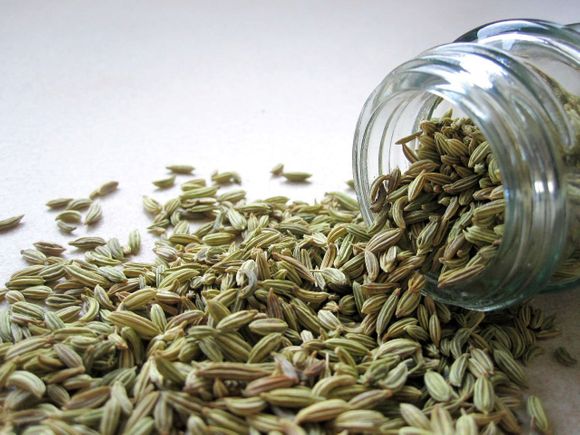
Precautions
One should be careful when using fennel for healing purposes, especially when using fennel supplements, where the amount of the active compounds is very large.
Fennel usage for medical purposes is not recommended by pregnant women due to its estrogenic effect. Fennel is safe, however, for pregnant women to eat in moderate amounts as food.
We should mention here that fennel should not be consumed by people who are allergic to other representatives of the Apiaceae family such as carrots, coriander, celery,parsley, dill, etc.
Tea, extracts and supplements with fennel may also be incompatible with certain medicinal products, so consultation with a doctor is highly recommended before their use.
Nutritional value
Different parts of the fennel are used for food such as the stem, leaves and seeds. They are all rich in nutrients even though they have a low caloric value. fennel is a goog source of important minerals such as [ref.2]:
- potassium - contains about 414 mg of potassium per 100 g. It is an extremely important macroelement, which has a maintenance role for the functions of the nervous and muscular systems;
- calcium - contains about 49 mg per 100 g. Important for bone development and numerous other functions in the body;
- also contains magnesium, sodium, phosphorus, zinc, iron.
In terms of vitamins in the greatest amount, we can obtain vitamin C from the raw vegetable. Vitamin C is necessary for the body's immune defenses, wound healing, collagen synthesis.
Read more about vitamin C in the article .
How to consume fennel - recipes
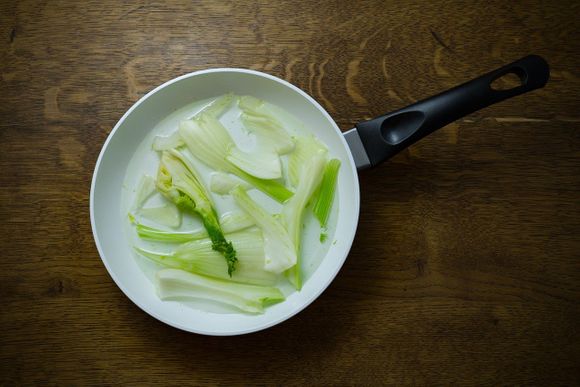
Fennel can be consumed both in the form of aromatic dishes inspired by Mediterranean cuisine, and in the form of various tinctures, teas, syrups or essential oil.
The fennel tea is most often prepared from the seeds. Add 2 spoons of seeds to 1 liter of water and leave to boil for 10 minutes. Remove from the heat and leave to cool at room temperature under a lid. Drink half an hour after a meal.
As mentioned above, The different parts of the fennel can be used as a food. Its taste is pleasant and anise-like, but if you do not like it, an easy trick in its preparation is to stew it with onions, garlic, fresh thyme, salt, pepper and add a glass of white wine. Cook over low heat and add just a little of lemon juice at the end. The taste is slightly sweet and cooling, which makes it an ideal appetizer for the warm days.
Of course, ouzo remains one of the most pleasant forms of consumption, especially for the hot summer months. A little glass of the digestive drink doesn't sound bad at all, does it?
